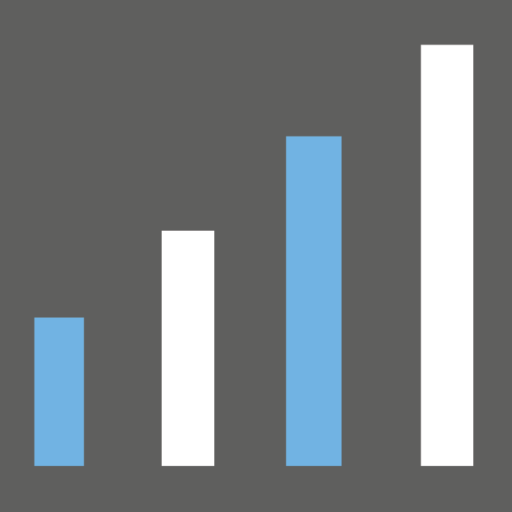Table of Contents
- Introduction
- Market Overview
- Growth Drivers
- Market Trends
- Opportunities in the Market
- Regional Analysis
- Segmentation Analysis
- Competitive Landscape
- Future Outlook
- AI Marketing Platform Market by Region – Table
- Challenges and Restraints
- Strategic Recommendations
- AI Marketing Platform Market by Type – Table
- Related Reports
- AI Marketing Platform Market by Application – Table
- Frequently Asked Questions (FAQ)
- Key AI Marketing Platform Market Players – Table
Introduction
The global AI Marketing Platform Market is undergoing a significant transformation, driven by the increasing adoption of artificial intelligence in marketing activities. This report provides a comprehensive analysis of the market, including market size, share, growth drivers, trends, opportunities, and forecast to 2032. The integration of AI into marketing processes is enabling businesses to enhance customer engagement, improve campaign performance, and optimize marketing spend. This introduction sets the stage for understanding the transformative impact of AI marketing platforms on modern marketing strategies. AI Marketing Platforms leverage artificial intelligence technologies, such as machine learning, natural language processing, and predictive analytics, to automate and optimize various marketing tasks. These platforms can analyze vast amounts of data to identify customer patterns, personalize marketing messages, and predict future trends. By automating repetitive tasks and providing data-driven insights, AI marketing platforms empower marketers to make more informed decisions and achieve better results. The increasing demand for personalized customer experiences and the growing complexity of marketing channels are driving the adoption of AI marketing platforms across various industries.
Market Overview
The global AI Marketing Platform market is projected to grow from US$ 2736 million in 2024 to US$ 6946.6 million by 2030, at a Compound Annual Growth Rate (CAGR) of 16.8% during the forecast period. This substantial growth is driven by the increasing need for businesses to enhance their marketing effectiveness and improve customer engagement. The market encompasses various segments based on type, application, and region, each contributing to the overall growth. Key players in the market are focusing on innovation and strategic collaborations to expand their market presence. The AI Marketing Platform market is characterized by rapid technological advancements and increasing competition. The market’s ecosystem includes a diverse range of solutions, from content marketing and email marketing to online advertising and social media marketing. The growing emphasis on data-driven marketing and the increasing complexity of customer journeys are fueling the demand for AI marketing platforms. Furthermore, the shift towards cloud-based marketing solutions and the expansion of AI applications in emerging economies are creating new opportunities for market players. Understanding the dynamics of the AI Marketing Platform market requires a comprehensive view of its various components and their interactions.
Growth Drivers
Several factors are propelling the growth of the AI Marketing Platform market. A primary driver is the increasing need for personalized customer experiences. Consumers expect brands to understand their preferences and deliver tailored content and offers. AI marketing platforms enable businesses to analyze customer data and personalize marketing messages at scale, enhancing customer engagement and loyalty. The growing volume of data and the need for efficient data processing are also contributing to market growth. Additionally, the increasing adoption of digital marketing channels and the need to optimize marketing spend are driving demand for AI marketing platforms. Moreover, the advancements in AI technology, such as improved machine learning algorithms and natural language processing capabilities, are making AI marketing platforms more effective and user-friendly. The increasing focus on marketing automation and the need to streamline marketing processes are also driving the adoption of AI marketing platforms. Furthermore, the growing awareness of the benefits of AI in marketing and the increasing availability of AI marketing solutions are contributing to market expansion. These drivers collectively create a favorable environment for the AI Marketing Platform market to thrive.
AI Marketing Platform Market by Region – Table
This table provides a regional breakdown of the AI Marketing Platform market, highlighting key regions and their respective market shares. Understanding the regional dynamics is crucial for strategic market planning.
| Region | Market Share (2024) | Projected CAGR (2024-2030) | Key Drivers |
|---|---|---|---|
| North America | 40% | 15% | High adoption of AI technologies, strong presence of key market players |
| Europe | 25% | 17% | Increasing investments in digital marketing, growing demand for personalization |
| Asia Pacific | 20% | 19% | Rapid growth in digital advertising, increasing adoption of AI in marketing |
| South America | 8% | 16% | Growing adoption of digital marketing, increasing internet penetration |
| Middle East and Africa | 7% | 18% | Increasing investments in digital transformation, growing e-commerce sector |
Market Trends
Several key trends are shaping the AI Marketing Platform market. One significant trend is the increasing integration of AI with customer relationship management (CRM) systems. This integration enables businesses to leverage AI to enhance customer interactions, improve sales processes, and personalize customer service. Another trend is the growing adoption of AI-powered chatbots for customer support and engagement. These chatbots can handle a wide range of customer inquiries, freeing up human agents to focus on more complex issues. The increasing use of AI for predictive analytics in marketing is also a notable trend. AI marketing platforms can analyze customer data to predict future behavior and optimize marketing campaigns accordingly. Furthermore, the shift towards cloud-based AI marketing platforms is becoming increasingly prevalent, offering businesses greater flexibility, scalability, and cost-effectiveness. The focus on AI ethics and transparency is also influencing the development and deployment of AI marketing platforms, with vendors striving to ensure that their AI solutions are fair, unbiased, and transparent. The growing adoption of AI in emerging economies and the increasing demand for AI-powered marketing solutions are further contributing to the evolution of the AI Marketing Platform market.
Opportunities in the Market
The AI Marketing Platform market presents numerous opportunities for growth and innovation. One significant opportunity lies in the development of AI marketing solutions for small and medium-sized enterprises (SMEs). SMEs often lack the resources and expertise to implement AI marketing strategies, creating a demand for affordable and easy-to-use AI marketing platforms. Another opportunity is the development of specialized AI marketing solutions for specific industries, such as healthcare, finance, and retail. These specialized solutions can be tailored to the unique requirements of each industry, providing better performance and efficiency. Furthermore, the increasing adoption of AI in emerging economies presents significant growth opportunities for AI marketing platform vendors. Moreover, the integration of AI marketing platforms with other enterprise systems, such as e-commerce platforms and customer data platforms (CDPs), offers a significant opportunity for vendors to provide more comprehensive and integrated solutions. The development of AI marketing solutions that address privacy concerns and comply with data protection regulations is also a key opportunity. Additionally, the increasing focus on customer experience and the need for personalized customer journeys present opportunities for vendors to develop AI marketing platforms that can deliver exceptional customer experiences. Capitalizing on these opportunities can drive significant growth and innovation in the AI Marketing Platform market.
AI Marketing Platform Market by Type – Table
This table categorizes the AI Marketing Platform market by type, showing the market share and projected growth for different marketing applications. This segmentation helps understand the demand for various types of AI marketing platforms.
| Type | Market Share (2024) | Projected CAGR (2024-2030) | Applications |
|---|---|---|---|
| Content Marketing | 30% | 18% | Content creation, optimization, and personalization |
| Email Marketing | 25% | 16% | Email personalization, automation, and optimization |
| Online Advertisement | 20% | 19% | Ad targeting, bidding, and optimization |
| Social Media Marketing | 15% | 20% | Social media management, analytics, and automation |
| Others | 10% | 17% | Search engine optimization, influencer marketing, etc. |
Regional Analysis
The AI Marketing Platform market is segmented into several key regions, including North America, Europe, Asia Pacific, South America, and the Middle East and Africa. North America is currently the largest market for AI marketing platforms, driven by the high adoption of AI technologies and the strong presence of key market players. Asia Pacific is expected to be the fastest-growing market, driven by the rapid growth in digital advertising and increasing adoption of AI in marketing. Europe is also a significant market, with increasing investments in digital marketing and a growing demand for personalization. South America and the Middle East and Africa are emerging markets with growing potential for AI marketing platform adoption. Each region presents unique opportunities and challenges for AI marketing platform vendors. In North America, the focus is on developing advanced AI marketing solutions and maintaining a competitive edge. In Asia Pacific, the emphasis is on expanding market reach and catering to the growing demand for AI marketing solutions. In Europe, the focus is on innovation and developing AI marketing solutions that comply with stringent data protection regulations. In South America and the Middle East and Africa, the emphasis is on building awareness and driving adoption of AI marketing technologies. Understanding these regional dynamics is crucial for developing effective market strategies.
Segmentation Analysis
The AI Marketing Platform market is segmented by type and application. By type, the market is segmented into content marketing, email marketing, online advertisement, social media marketing, and others. Content marketing and email marketing are the largest segments, driven by the increasing need for personalized content and automated email campaigns. By application, the market is segmented into large enterprises and SMEs. Large enterprises are the largest application segment, driven by the widespread adoption of AI marketing platforms in large organizations. The SMEs segment is expected to grow rapidly, driven by the increasing availability of affordable and easy-to-use AI marketing platforms. The segmentation analysis provides valuable insights into the specific areas of the AI Marketing Platform market that are driving growth and innovation. Understanding the dynamics of each segment is crucial for developing targeted market strategies and maximizing market opportunities. For example, vendors can focus on developing AI marketing platforms for specific types of marketing activities, such as content marketing or email marketing. They can also focus on developing AI marketing solutions for specific types of organizations, such as large enterprises or SMEs. The segmentation analysis helps vendors to identify the most promising areas for investment and growth.
Competitive Landscape
The AI Marketing Platform market is highly competitive, with several key players vying for market share. The major players in the market include Accenture, Blueshift, Albert, Emarsys, DataRobot, re:nable, Baidu, Phrasee, Telepath Data, Optimove, Grammarly, MarketMuse, Acrolinx, PathFactory, and RAD AI. These companies are focusing on innovation, strategic partnerships, and mergers and acquisitions to strengthen their market position. The competitive landscape is characterized by continuous technological advancements and increasing competition. Companies are constantly striving to develop more effective, user-friendly, and affordable AI marketing platforms to gain a competitive edge. They are also focusing on developing AI marketing solutions for specific industries and marketing activities to differentiate themselves from the competition. The increasing demand for AI marketing platforms and the growing number of market players are expected to further intensify the competition in the AI Marketing Platform market. Companies that can deliver innovative, cost-effective, and easy-to-use AI marketing solutions are best positioned to succeed in this dynamic market.
AI Marketing Platform Market by Application – Table
This table breaks down the AI Marketing Platform market by application, showing the market share and projected growth for different enterprise sizes. This helps in understanding which applications are driving the demand for AI Marketing Platforms.
| Application | Market Share (2024) | Projected CAGR (2024-2030) | Key Benefits |
|---|---|---|---|
| Large Enterprises | 60% | 16% | Enhanced customer engagement, improved marketing ROI |
| SMEs | 40% | 18% | Cost-effective marketing, increased efficiency |
Future Outlook
The future of the AI Marketing Platform market looks promising, with significant growth expected in the coming years. The increasing adoption of AI across various industries, the growing need for personalized customer experiences, and the proliferation of digital marketing channels are expected to drive market growth. The development of new AI technologies, the shift towards cloud-based solutions, and the increasing focus on AI ethics are also expected to shape the future of the AI Marketing Platform market. The market is expected to continue to be highly competitive, with key players focusing on innovation and strategic partnerships to maintain their market position. Furthermore, the increasing integration of AI marketing platforms with other enterprise systems and the growing adoption of AI in emerging economies are expected to create new opportunities for market players. The focus on customer data privacy and security is also expected to drive innovation in the AI Marketing Platform market, with vendors developing AI marketing solutions that comply with data protection regulations. Overall, the future outlook for the AI Marketing Platform market is bright, with significant opportunities for growth and innovation.
Challenges and Restraints
Despite the promising growth prospects, the AI Marketing Platform market faces several challenges and restraints. One significant challenge is the high cost of implementing AI marketing platforms, which can be a barrier to adoption for smaller businesses and organizations. Another challenge is the complexity of AI technology, which requires specialized expertise to implement and manage AI marketing campaigns. The limited availability of skilled AI professionals is also a restraint on market growth. Additionally, concerns about data privacy and security can hinder the adoption of AI marketing platforms, particularly in industries that handle sensitive customer data. Furthermore, the lack of transparency in AI algorithms and the potential for bias in AI-driven marketing decisions can create ethical concerns. The regulatory landscape for AI marketing is still evolving, and uncertainties about future regulations can create challenges for AI marketing platform vendors. Addressing these challenges and restraints is crucial for ensuring the sustainable growth of the AI Marketing Platform market.
Strategic Recommendations
To capitalize on the opportunities and address the challenges in the AI Marketing Platform market, vendors should consider the following strategic recommendations. First, focus on developing cost-effective AI marketing platforms to make them more accessible to a wider range of customers, including SMEs. Second, invest in training and education programs to address the shortage of skilled AI professionals. Third, develop AI marketing solutions with robust data privacy and security features to address concerns about data protection. Fourth, ensure transparency in AI algorithms and mitigate potential biases in AI-driven marketing decisions. Fifth, actively engage with regulators to shape the regulatory landscape for AI marketing. Furthermore, vendors should focus on building strong partnerships with other companies in the marketing technology ecosystem to expand their reach and offer comprehensive marketing solutions. They should also invest in research and development to stay ahead of the curve and develop innovative AI marketing technologies. Additionally, vendors should focus on providing excellent customer support and building strong customer relationships to foster customer loyalty. By implementing these strategic recommendations, vendors can position themselves for success in the rapidly growing AI Marketing Platform market.
Key AI Marketing Platform Market Players – Table
This table lists the key players in the AI Marketing Platform market, along with their market strategies and product offerings. Understanding the competitive landscape is essential for strategic planning.
| Company | Market Strategy | Key Products |
|---|---|---|
| Accenture | Strategic consulting, AI implementation | Accenture AI, Marketing Transformation |
| Blueshift | AI-powered marketing automation | Blueshift SmartHub CDP |
| Albert | Autonomous marketing platform | Albert AI |
| Emarsys | Omnichannel customer engagement | Emarsys Marketing Platform |
| DataRobot | Automated machine learning platform | DataRobot AI Platform |
| re:nable | AI-powered marketing solutions | re:nable AI Marketing Suite |
| Baidu | AI-driven advertising and marketing | Baidu AI Marketing |
| Phrasee | AI-optimized marketing language | Phrasee AI Copywriting |
| Telepath Data | AI-powered customer insights | Telepath Customer Intelligence |
| Optimove | Customer-led marketing platform | Optimove CDP |
| Grammarly | AI-powered writing assistant | Grammarly Business |
| MarketMuse | AI-driven content planning | MarketMuse Content Strategy |
| Acrolinx | AI-powered content governance | Acrolinx Content Alignment |
| PathFactory | Content intelligence platform | PathFactory Content Insights |
| RAD AI | AI-powered content marketing | RAD AI Content Automation |





